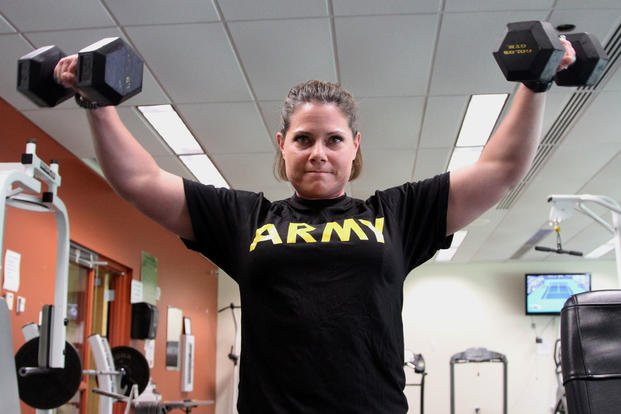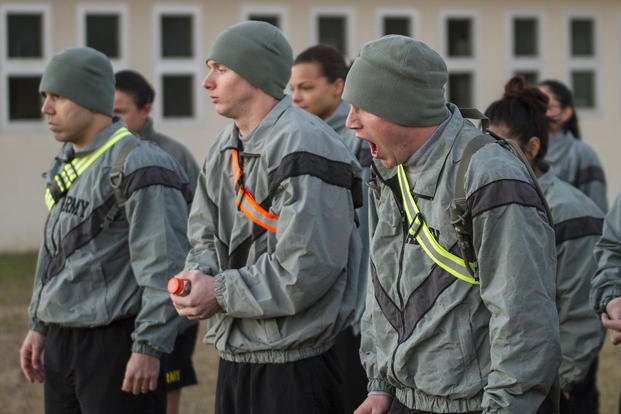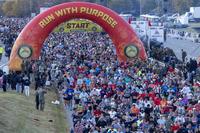It is 10% physical and 90% mental.
Have you ever heard that statement? It often refers to challenging military and law enforcement training programs. The first time I heard the saying was at SEAL training, and I never quite understood what it meant at the time because it felt like 100% physical at the time.
I promise you this. It does not refer to 90% mental with regard to academic studies at SEAL training. There is academic studying you must do, but typically it refers to how well you mentally push yourself through pain. But, today, a former college football player said his coach taught him that "if you show up out of shape, the mental is twice as hard."
This concise statement is what I have been trying to say for years when explaining rigorous training programs. Personal experience has shown that the better condition you are in physically, the more likely you can handle stress, understand a tactical concept, perform a task to precision and master other job-related duties.
Too often, recruits show up reaching the minimum standards of fitness for boot camp, basic, indoctrination, etc., and fail at something like land navigation, shooting and other job-related skills. Or the out-of-shape recruit is likely to become injured on normal daily activity PT or runs, because they are not conditioned for the most basic of activities.
From here, the deconditioned recruit will miss valuable training and likely will be rolled into a different class, quit or be dismissed from the training program altogether. That is what happens when you show up not prepared.

When preparing for a training program that you know is going to be physical (military basic, special-ops training, police academy, etc.), take the minimum standards for acceptance into those programs and increase them for yourself. Minimum standard recruits typically have a very low percentage of completing, graduating or excelling in any part of the program.
Rule of Thumb for Preparedness
For calisthenics-type testing -- pull-ups, push-ups, sit-ups -- you will see a minimum standard for acceptance into the program. Recommendations range from a 50% to 100% increase in the minimum standards and sometimes more.
For instance, the minimum standard for SEAL training pull-ups is six; it is recommended to do 20 before attending BUD/S. The minimum standards for push-ups and sit-ups for many service branches and police typically range from 20-40 repetitions to pass. I would recommend striving for a 50% to 100% increase in those numbers.
For cardiovascular testing, this one generally is more difficult to gauge. If you can get 1-2 minutes under the minimum standards on a run or swim, then you are setting yourself up for a better performance and conditioning throughout your training. For example, if the minimum standard for a 1.5-mile run is 12:30, then it is recommended to run a 10-11:30 to create a cushion for yourself.
There will be a time when you "feel" you cannot run another step, or when you "feel" like you cannot do another push-up. In advanced training programs, this is where mental toughness comes into play in order to push through the pain and discomfort of long days and nights. Through tough physical fitness training, you will sharpen the mind and build a tolerance for pain at a point when most people will quit from exhaustion.
Whether you are seeking to serve in the military, law enforcement or the special operations community, you should ask yourself, "Am I using the minimum standards as my capstone goal for training?" If the answer is yes, then you should rethink your training plan and give yourself more time to exceed the minimum standards.
If you do this, training will be fun and educational, and you will look back at it with confidence. This will affect everything else you do in the future and create a higher standard for you personally, professionally, physically and, yes, even mentally.
Stew Smith is a former Navy SEAL and fitness author certified as a Strength and Conditioning Specialist (CSCS) with the National Strength and Conditioning Association. Visit his Fitness eBook store if you're looking to start a workout program to create a healthy lifestyle. Send your fitness questions to stew@stewsmith.com.
Want to Learn More About Military Life?
Whether you're thinking of joining the military, looking for fitness and basic training tips, or keeping up with military life and benefits, Military.com has you covered. Subscribe to Military.com to have military news, updates and resources delivered directly to your inbox.



















